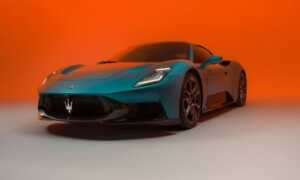Share via: At the 7th FADA Auto Retail Conclave, Nitin Gadkari urged Indian automakers to look beyond domestic markets. With exports, alternative fuels, and a strong EV supply chain, India can become a global auto powerhouse within five years. …Read More Nitin Gadkari emphasised that for India to emerge as a global auto hub, exports must become the next growth engine. (Mohd Nasir for HT Auto) View Personalised Offers on Check Offers The Indian automobile industry is at a turning point. On one hand, passenger vehicle sales are holding steady; on the other, cracks are appearing in the entry-level segment. Electric vehicles, meanwhile, remain heavily dependent on subsidies, and the journey to meaningful scale feels long and uncertain. At the 7th FADA (Federation of Automobile Dealers Associations) Auto Retail Conclave, Union Minister Nitin Gadkari chose not to dwell on these immediate pressures. Instead, he painted a bigger picture: for India to emerge as a global auto hub, exports must become the next growth engine. Domestic market has limitsGadkari was candid. The domestic market, while large, has ceilings. To truly compete internationally, Indian manufacturers need to prove themselves on foreign roads. He cited concrete examples: Maruti Suzuki plans to lift exports from 283,000 units in FY25 to 400,000 units in FY26, targeting Africa, Latin America, ASEAN, and Japan. Hyundai and Kia continue to use India as a base for compact SUVs and hatchbacks heading abroad, and Tata Motors is quietly expanding its EV shipments to overseas markets. Also Read : Future of transport would be built on electric vehicles, biofuels and hydrogen: Nitin Gadkari Gadkari’s point was clear: exports cannot be a safety net for domestic fluctuations, they must run alongside domestic growth as a parallel engine. Alternative fuels: Beyond import substitutionLong a proponent of ethanol, methanol, biofuels, and flex-fuel engines, Gadkari reframed these now as export opportunities. “These are not just for reducing oil imports,” he noted. Countries across Asia, Africa, and Latin America are looking for affordable decarbonisation solutions. India, with its flex-fuel engines and blending mandates, is in a position to export both technology and vehicles. EVs and supply chain realitiesElectrification is inevitable, but Gadkari made it clear that scale alone won’t cut it. EV adoption has to be anchored in a strong domestic supply chain, batteries, motors, electronics, otherwise India risks swapping one dependency for another. There’s no sugarcoating it: export ambitions will only hold water if they are built on local capabilities. Also Read : Govt aims to make Indian auto industry world’s No. 1: Nitin Gadkari India’s competitive edgeAnd here, India is not starting from scratch. Gadkari pointed to India’s skilled workforce, well-established industrial ecosystem, and competitive production costs as key advantages. He highlighted companies like JCB and Mercedes, which are not just building vehicles in India but shipping them across the globe, a clear signal that “Made in India” can represent quality and reliability, not merely affordability. The domestic market is certainly large, he noted, but the real prize, the one that can truly define India’s auto ambitions, lies beyond its borders. With capable manpower, cost advantages, and growing technological expertise, Gadkari believes India has everything it needs to emerge as the world’s leading automobile industry within five years. Looking outwardWhat stood out in Gadkari’s fireside chat was not a new policy but strategic direction. Indian OEMs are already venturing beyond home soil: Maruti Suzuki is betting on exports, Hyundai and Kia have made India a global hub, and Tata Motors is quietly testing EV markets abroad. Gadkari’s message: accelerate this momentum and match it with global standards of quality, safety, and sustainability. India has already demonstrated it can build cars at scale. The next step is to sell them everywhere, making “Made in India” synonymous with credibility, trust, and ambition. Get insights into Upcoming Cars In India, Electric Vehicles, Upcoming Bikes in India and cutting-edge technology transforming the automotive landscape. First Published Date: 11 Sept 2025, 08:00 am IST
Source: hindustantimes.com






